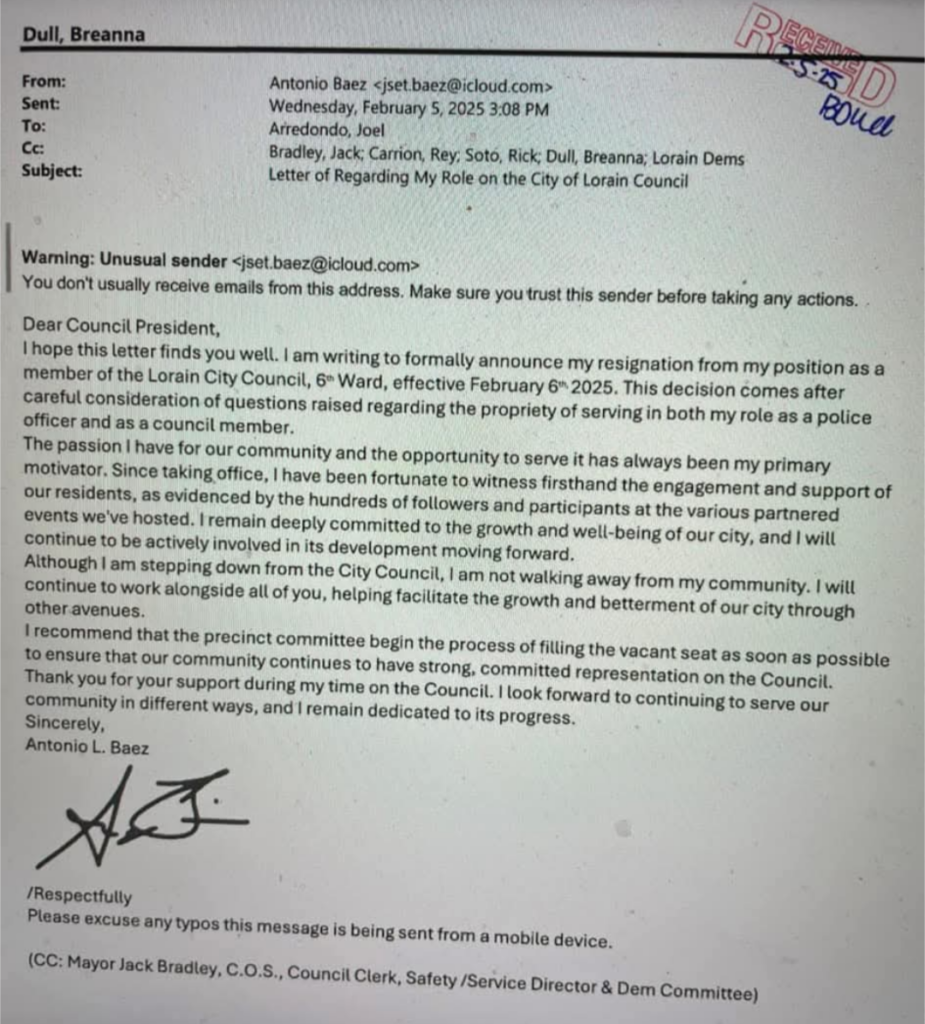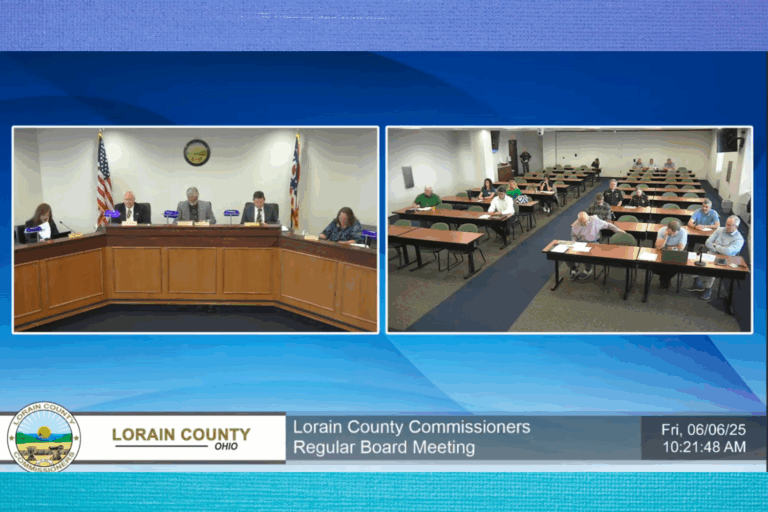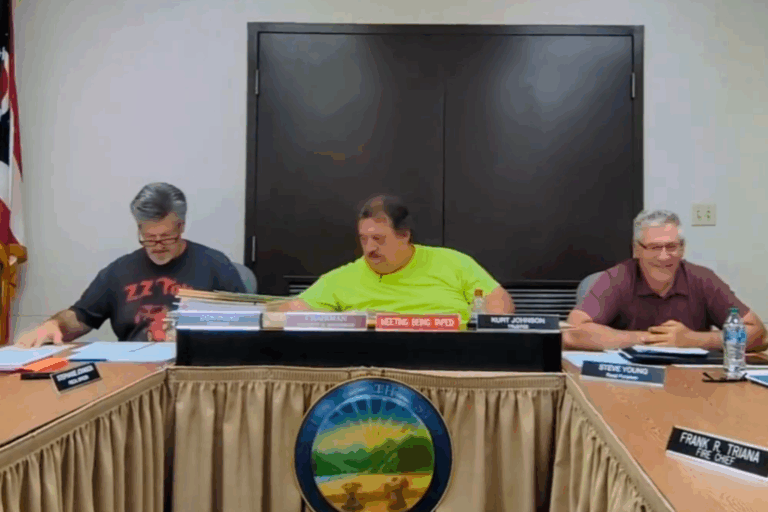
Can a law enforcement officer fairly vote on their department’s budget? Other law enforcement departments? Can they remain impartial when city leadership debates police policies? These questions highlight a growing concern in local government—whether classified employees, particularly law enforcement officers, should serve on city councils.
In cities like Vermilion, where elections are nonpartisan, law enforcement officers are legally allowed to run for and serve on council. However, in places like Lorain, where elections are partisan, such crossover is prohibited. This distinction raises critical ethical concerns about transparency, accountability, and public trust.

A recent incident in a Vermilion City Council meeting underscores these concerns. When the finance director jokingly suggested using a taser on a councilman she disagreed with, a law enforcement officer on the council responded, “It may take a couple.” Two other officers present at the meeting remained silent, failing to condemn the statement. This exchange, captured on video, has sparked debate about the blurred lines between law enforcement and legislative power.
Video of Incident: Facebook Link
The Legal and Ethical Concerns
Restrictions on classified employees engaging in political activities exist for a reason. Laws like the Hatch Act aim to prevent conflicts of interest, ensure impartial governance, and maintain public trust in both law enforcement and local government.
The concerns surrounding law enforcement officers on city councils include:
- Divided Loyalties: Officers may face conflicts when voting on police funding, disciplinary matters, or policy changes that affect their department.
- Undue Influence: The presence of officers in legislative roles could intimidate other council members or suppress critical discussions about law enforcement policies.
- Public Perception: Even if an officer acts impartially, the perception of bias can erode trust in both the council and the police department.
The Taser Incident: A Case Study
The Vermilion City Council meeting incident serves as a case study in how these concerns play out in real life. The finance director’s remark about tasing a councilman was inappropriate on its own, but the fact that a law enforcement officer on the council engaged with the joke, rather than condemning it, raises red flags.
Furthermore, the two other officers present did not intervene, which could be interpreted as tacit approval. This silence reinforces concerns about the normalization of inappropriate behavior in public office, particularly when law enforcement officers hold legislative power.
Nonpartisan vs. Partisan Elections: A Key Distinction
Vermilion allows law enforcement officers to serve on council because its elections are nonpartisan. This means candidates do not run under a political party, and employment restrictions on political activity are looser. However, in Lorain, where elections are partisan, law enforcement officers are prohibited from running due to conflict-of-interest concerns.
This raises the question: Should Vermilion reconsider? The absence of a party label does not eliminate the ethical dilemmas associated with classified employees serving in legislative roles. Especially in the cases that a classified employee, who’s also serving on Council, has a superior serving in an elected, partisan role within Government Municipalities they govern in.
Potential Solutions
Other cities have tackled this issue through:
- Stronger Local Ethics Rules: Requiring recusal from votes involving police budgets or policies.
- Increased Transparency: Mandatory disclosures of potential conflicts of interest.
- Public Oversight: Community advisory boards to review and report on council members’ ethical conduct.
- Stricter Regulations: Following Lorain’s lead by prohibiting law enforcement officers from holding council positions.
Conclusion: Preserving Public Trust
The recent Vermilion City Council incident serves as a reminder of why restrictions on classified employees in legislative roles exist. While officers have the right to serve their communities, their dual roles in law enforcement and city governance raise valid concerns.
If Vermilion wants to maintain public trust, it may need to reevaluate the implications of allowing law enforcement officers to hold legislative power. At the very least, clearer ethical guidelines and accountability measures should be put in place to ensure fairness, transparency, and integrity in local government.
The Lorain Dilemma: Addressing Past Votes
In Lorain, a similar situation involving a law enforcement officer on the council raises serious concerns. Councilman Baez, a law enforcement officer, has been serving in a position that is prohibited under the city’s partisan election rules. This conflict of interest could render his votes on council invalid, especially those concerning police policies and budgets.
The question now is: How can Lorain address the votes and decisions Councilman Baez has made over the past year? A municipality facing such a situation has a responsibility to conduct a thorough review of all votes he participated in. This includes re-examining any legislation, ordinances, or decisions that directly impacted the police department or public safety.
To rectify this, the city could:
- Conduct a Legal Review: Assess which decisions may need to be reconsidered or even nullified due to the conflict of interest.
- Issue a Public Statement: Communicate to the public about the review process, maintaining transparency.
- Enact Clearer Policies: Going forward, stricter guidelines for who can serve on council could be enacted to avoid future conflicts and to preserve public trust.
By addressing this issue head-on, Lorain can demonstrate a commitment to upholding the integrity of its local government and ensuring that its elected officials act in the best interests of the community.
What they went with at Monday’s Lorain City Council Meeting was quite the opposite.

The Departure of Councilman Baez: Public vs. Private Reasons
At the most recent council meeting, officials implied that Councilman Baez was stepping down for personal reasons as reason given from his resignation letter. However, many observers have questioned whether this explanation fully addresses the underlying issue—the potential violation of the Hatch Act and his ineligibility to serve as a law enforcement officer on a partisan council.
While the council’s narrative may try to downplay the real reason for his departure, it seems likely that Baez’s resignation stems from the growing scrutiny over his role as both a law enforcement officer and an elected official.
Despite this, it’s unclear if the council is fully confronting the legal implications of having a law enforcement officer voting on issues that directly concern his peers. Instead, the story put forth at the meeting sidestepped the core issue of public trust and potential violations.
This avoidance of addressing the potential Hatch Act violation could leave the community questioning whether their elected officials are prioritizing transparency and accountability or simply looking to downplay an uncomfortable truth.
Editor’s Note:

Either way it’s murky waters and if you ask me I’ve had enough uncertainty from my government officials for several lifetimes. Why don’t we start trying to be above reproach and play it straight? In the end, it is us the voters, that are robbed when government acts corruptly.




